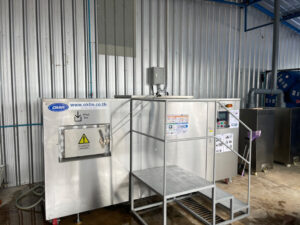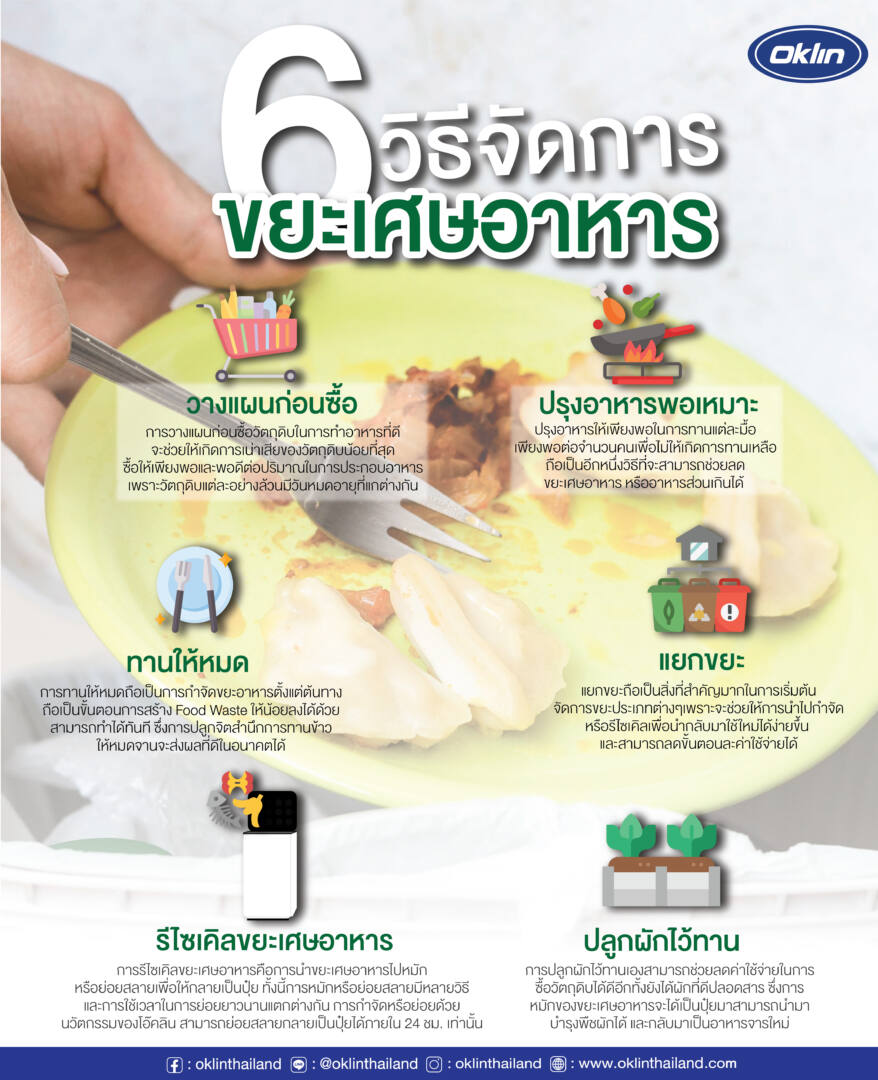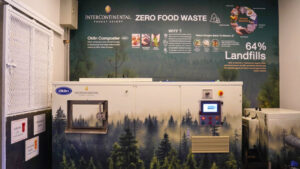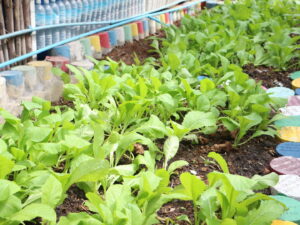
6 Ways to Manage Food Waste
6 Ways to Manage Food Waste


6 Ways to Manage Food Waste #FoodWaste
- Plan Before You Buy
Plan your grocery shopping wisely to minimize spoilage. Purchase only the amount you need for your recipes, as each ingredient has a different shelf life. - Cook the Right Amount
Prepare only enough food for the number of people eating to avoid leftovers. This is an effective way to reduce food waste and excess portions. - Finish Your Plate
Eating all the food on your plate helps eliminate food waste at the source. Building the habit of finishing meals can have a long-term positive impact. - Separate Waste
Proper waste segregation is essential. Separating different types of waste makes disposal and recycling easier, reducing both steps and costs in waste management. - Recycle Food Waste
Recycling food waste involves composting or decomposing it into fertilizer. While traditional methods can take a long time, Oklin’s technology can turn food waste into compost in just 24 hours. - Grow Your Own Vegetables
Growing your own vegetables reduces grocery costs and ensures pesticide-free produce. Compost from food waste can be used to nourish plants, creating a cycle that turns waste back into fresh food.
OKLIN – Eco-Friendly Food Waste Composter
Turns food waste into dry fertilizer within 24 hours. It handles liquids without the need for separation, requires only a one-time microbial starter with no refills for its entire lifespan, and uses natural microbial decomposition that is safe for the environment. The process produces ready-to-use organic fertilizer and requires no filter changes, reducing hazardous waste. An Australian innovation, it is easy to use for both households and industrial applications.
Household model: 79,000 THB
Industrial model: Free site survey and waste volume assessment
Contact Line: @oklinthailand



